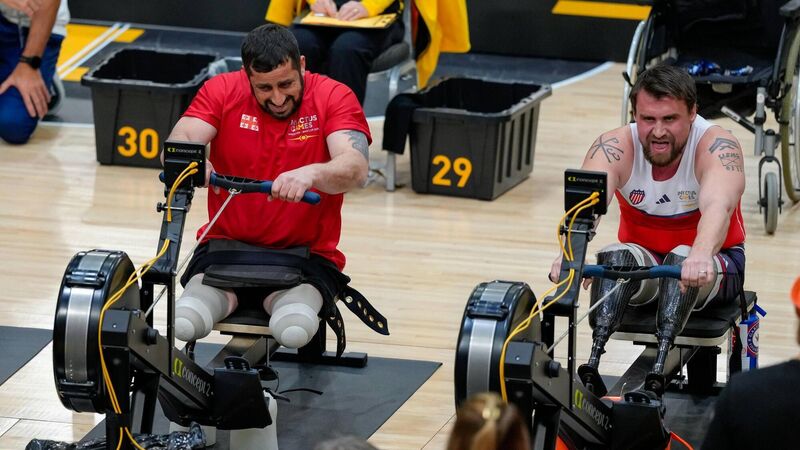Author interview: From Alaska to Afghanistan, and the Marines to a PhD in writing

Lasha Surmanidze of Georgia, left, and author Christopher Bryde, compete in the men’s IR4 four minute endurance indoor rowing event during the Invictus Games in Vancouver in Canada, in February. Picture: Derek Cain/Getty
- Upgunner
- Christopher Bryde
- Independently published, Amazon hb €25.40
- Interview: Mick Duggan




